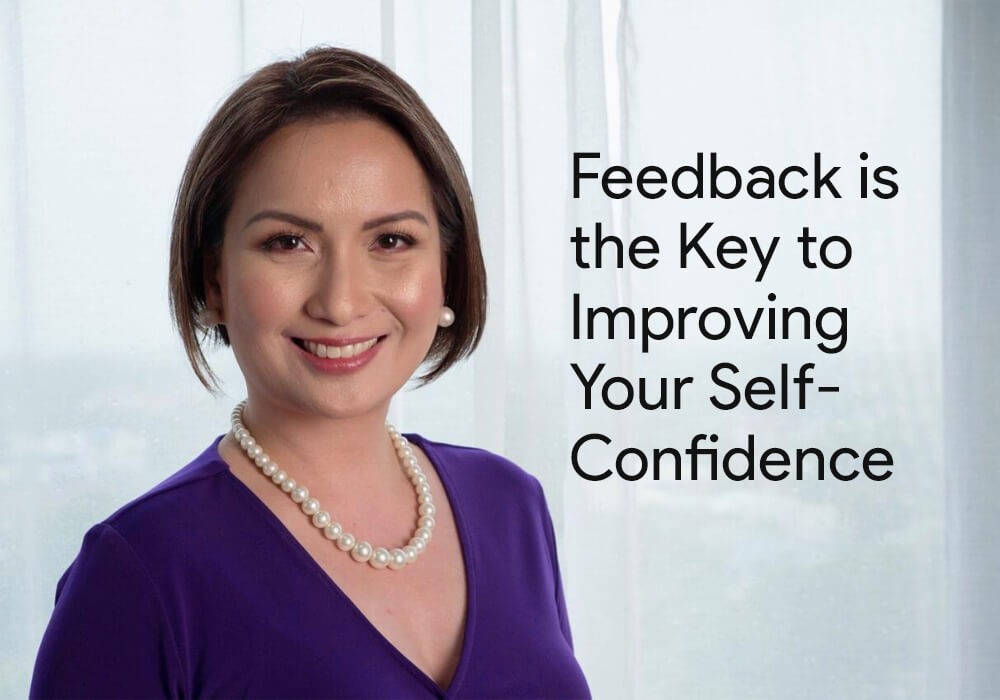Self-awareness is important. It can help you figure out how to hone certain skills, adapt to situations, and make better decisions. To understand yourself a little better, you need to make a habit of asking for regular feedback.
We all have blind spots. Asking for regular constructive feedback cuts through any self-deceit or one-dimensional views you might have. Ask people you trust aka those who understand you; whom you respect; and will tell you what you need to hear, not what you want to hear.
Why Do People Brush Off Asking for Feedback?
1) Distorted view. How you receive feedback might have something to do with your family background. If your loved ones had always treated feedback or given feedback, you might feel uncomfortable with it.
2) Self-protection. It’s only natural to protect ourselves from pain. We might have experiences that created emptiness and holes in our heart (e.g., trauma, coping skills). Either we become cowards or extremely proud.
3) Denial. Sometimes, we’ve reached a point where we believe we don’t need feedback. No feedback means no insight. As a result, we control our way of developing ourselves
Receiving feedback might be a sucker punch to our egos, but it’s a necessity, especially if want to achieve a better version of ourselves.
How Can You Get Feedback?
· Listen. When people tell you something negative about you, it’s natural to feel defensive. Once you ask for feedback, be prepared to listen. Hear them out and keep yourself from commenting.
· Be selective about who you seek feedback from. Don’t choose someone who will simply tell you what you want to hear or intentionally hurt you. Pick people you know will be, honest and courageous in the way they respond. People whose opinions you respect. Be brave and ask a range of people. I asked colleagues, clients, family and friends. I think my husband enjoyed the activity the most!
· Don’t get angry or offended by the feedback. If you’ve asked for it and someone has given it, be grateful for the gift, even if it hurts. Regardless of whether you agree with the feedback or not, it is someone else’s perception of you.
· Use the feedback to help you improve, not to beat yourself up. The purpose of seeking constructive personal feedback is for your personal development, NOT so you can criticize yourself for being imperfect. Remember: no one is perfect.
· Pray first so GOD will help you see this activity in the correct perspective
Feedback is the Key to Improving Your Self-Confidence
Getting feedback is one way to improve the way you view yourself. Yes, it hurts to have people offer their insight about you, but you’ll need their idea so you can work on yourself. By using their feedback to build a better version of yourself, you can also start feeling better about who you are.
In fact, you can achieve a higher level of confidence — an extraordinary type of confidence.
Extraordinary confidence is an individual’s trust in God’s truth about his or her self-worth and the ability to live out His word. But how can we achieve this?
Pride and confidence cannot both exist in the same person. Pride is an overestimation of yourself; confidence is the result of a right understanding of your abilities and limitations. Consequently, prideful people are in constant need of justification to maintain the facade that they are something greater than their reality. They don’t want feedback.
Extraordinary confidence does not make us justify anything when we have the correct view of our abilities and character. It accepts what other people have to say about us.
The confident person can be humble when the prideful person cannot because the confident person’s limitations are not threats to be dealt with but limitations to be explored and improved upon.
When we accept feedback, we are on the right path.
Once you’ve gotten the hang of asking for feedback, see your shortcomings and deal with them without feeling that they threaten your sense of identity.
Let Us Help You in Your Journey
Still need help with feedback and improving your sense of identity?
We invite you to join our Extraordinary Confidence program, a 21-day online course that discusses various aspects of the Self: identity, self-awareness, and coping mechanisms. Discover who are and what you can be if you become more honest with yourself.
Don’t miss out on this course! Join us today!



